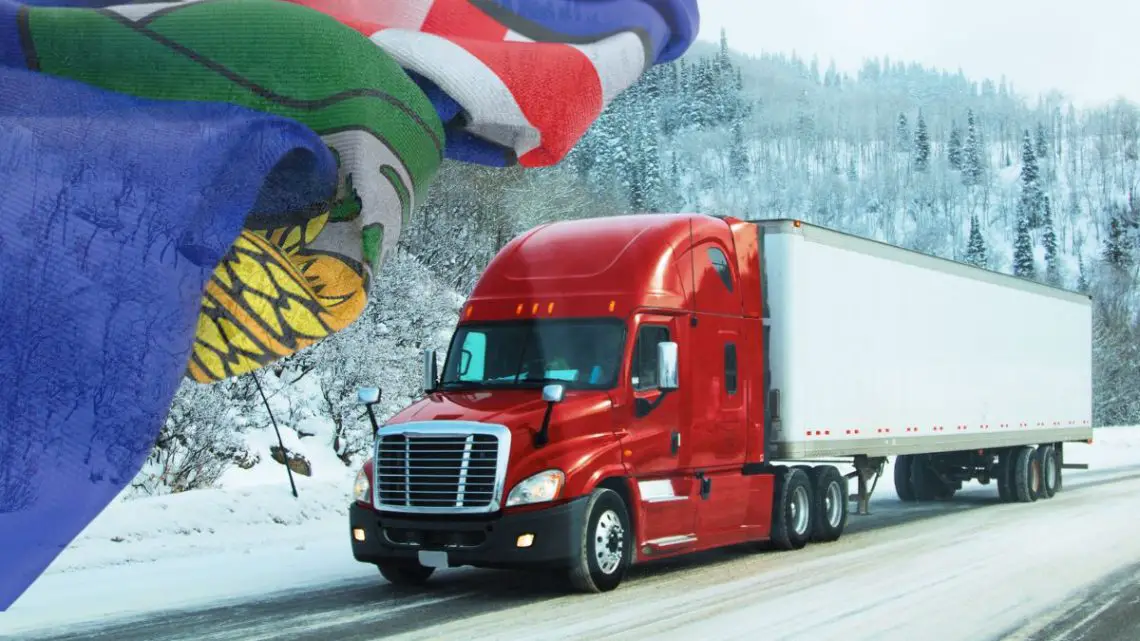
Will hydrogen trucks heading to Alberta be able to handle the province’s winter?
June 11, 2024Extremely cold temperatures could make refueling a problem.
Alberta is well-known for having cold winters and recent research conducted by the Alberta Motor Transport Association (AMTA) reveals that extreme cold temperatures could pose fueling challenges for hydrogen trucks.
The research included both hydrogen-diesel dual-fuel trucks and FCEVs.
The AMTA, a not-for-profit organization representing over 75% of over 24,000 commercial transportation carriers across Alberta, reported on research into the long-distance use of hydrogen trucks in the Canadian province’s extreme cold weather conditions. Specifically, this research, which was presented in a recent Mission Hydrogen webinar, focused on hydrogen-diesel dual-fuel vehicles and hydrogen fuel cell electric vehicles (FCEVs).
According to Jamie King – who works in research and innovation for AMTA and is the organization’s subject matter expert on hydrogen truck – AMTA has conducted trials with over 20 carriers using Hydra Energy dual-fuel trucks as well as Hyzon and Nikola fuel cell electric trucks.
Most hydrogen trucks are built for milder temperatures.
According to King, as reported by Power Progress, one of the issues is that many of the vehicles used in Canada are produced in Europe and the United States. The ones from the US, in particular, King says “are typically built for lighter loads, shorter distances and more mild temperatures.”

For instance, the Nikola hydrogen trucks are produced in Arizona, where it’s more important to consider hotter temperatures. However, as King points out, while in Arizona they might be considering 40°C (104°F), in Alberta they’re thinking about -40°C (-40°F).
One of the primary cold temperature-related challenges is fueling fuel cell electric vehicles. The reason for this is partly because of the purity needed for these vehicles.
Lack of purity can compromise the integrity of fuel cells.
King explained that fuel cell-grade hydrogen needs to be nearly 100% (99.999999%) pure. Without this level of purity, the integrity of the fuel cells in the hydrogen truck can be compromised, and there is a higher water content in the fuel if purity is diluted.
What’s more, the type of hydrogen fueling nozzle can also affect fuel access and refueling time, with high-flow nozzles taking less time to refuel than low-flow.
For now, dual-fuel hydrogen trucks may be the more logical choice for Alberta.
 While Alberta is interested in cleaner technologies, including hydrogen transportation, at present the reality is that many of the fleets in the province won’t be able to afford making a direct switch to FCEVs. King notes that a more cost-effective transition is to adopt hydrogen-diesel dual-fuel technology
While Alberta is interested in cleaner technologies, including hydrogen transportation, at present the reality is that many of the fleets in the province won’t be able to afford making a direct switch to FCEVs. King notes that a more cost-effective transition is to adopt hydrogen-diesel dual-fuel technology
With hydrogen-diesel dual-fuel, companies can take their current fleet to end-of-life. “In Canada, for approximately $60,000 to $70,000, you can retrofit your current truck to be diesel dual-fuel,” King said, adding that “purity — six nines — is not as critical for a dual-fuel truck.”



 With over 15 years of reporting hydrogen news, we are your premier source for the latest updates and insights in hydrogen and renewable energy.
With over 15 years of reporting hydrogen news, we are your premier source for the latest updates and insights in hydrogen and renewable energy.